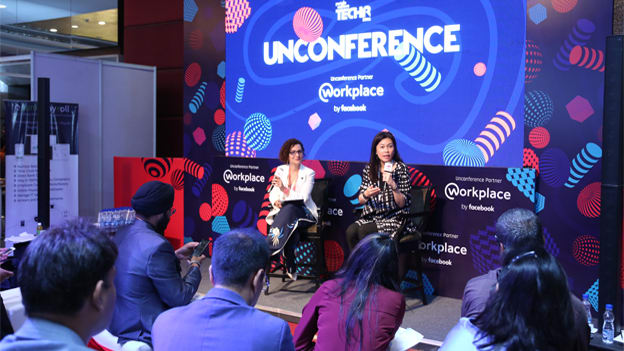Aileen Tan, Group CHRO Singtel on building agile teams

Singtel is a 139-years old Singaporean telecommunications company, which has only grown and expanded over the years. The journey of Singtel from a postal services company to the largest mobile network operator in Singapore has been quite an interesting one. The important question is-- how does a more than a century old company stay relevant in the age of rapid disruption?
Aileen Tan, Group CHRO Singtel in an interview with People Matters earlier shared three key areas which their team focuses on when they look at their annual operating plan and their people strategy each year.
Highlighting one of the practices of Singtel she said, “We identify initiatives that need to make way for new and relevant capacities and capabilities. This requires us to relook our operations and assess what is not creating an impact or adding value, and then eliminate them. Such an approach helps to bring new dimensions and approaches to our work.”
Further double clicking on the practice of elimination in place of addition of certain people practices, Aileen in the talkshow at TechHR 2018 spoke about building a team with an agile mindset.
Here is an excerpt from the talkshow:
As a leader, how do you build a team with an agile mindset?
Being a 139-year-old organization, we couldn't have been here if we were not an open organization.
For us, it is important to be able to respond to the disruptive changes proactively. We can’t allow complacency to set in.
Also, as an organization, we are always discontent. There is always something better coming our way and we want to embrace it as an organization. We believe we always have to look for new relevance for the business and for ourselves. And this is the DNA of the organization.
Earlier, we were only a little company in Singapore and had not really ventured into other regions. Then, we started to venture outside Singapore and made a couple of acquisitions. But this growth did not stop us. Because now we have to prepare ourselves for the digital disruptions we are facing. So, we identify the new opportunity and we organize ourselves again with more excitement and initiatives. Today, if we look at our business, 24 percent of our revenue is already in ICT and digital services that we are providing.
How do you identify initiatives that need to make way for new and relevant capacities and capabilities?
I love numbers. And this is how the 60-40 rule comes in while framing the strategies for the next year.
So, as per the 60-40 rule, when we look at our strategy every year, I ask my team, what is the 60 percent of the work that you still want to retain and what is the other 40 percent that we have to stop doing for embracing all the future or new initiatives.
This is because I will never have the luxury of having the unlimited resources. So, I can’t go and ask the leaders or business for additional funds to do something new. Instead, I have to ask my people to undo.
You have to stop doing something, for beginning something new. The decision to stop doing something is always the toughest but as an HR leader, we have to be courageous and say no and be very clear about it.
How do you convince the business to withdraw certain initiatives or to stop practices that they are already accustomed to?
Our business partners, our internal customers are very important to us. And their views matter to us.
But we also have to be pragmatic with our business. If you want the service that we want to stop providing, then be ready to be charged for it. Also, I tell them when I am taking something away from you, I am also giving you back two times three times greater opportunity. So, if you tell me I don’t want to stop doing the mundane transactions which we feel can instead be automated, then you better be prepared that you will not be enjoying the new capabilities around having new insights and better understanding around engagement. So, I am quite clear about those conversations with the leaders.
HR will not have credibility unless they are authentic and business driven.
(The article is based on the session, “In conversation with Aileen Tan, Group CHRO, Singtel” from Day 1 at People Matters TechHR18 Conference and Exhibition.)













